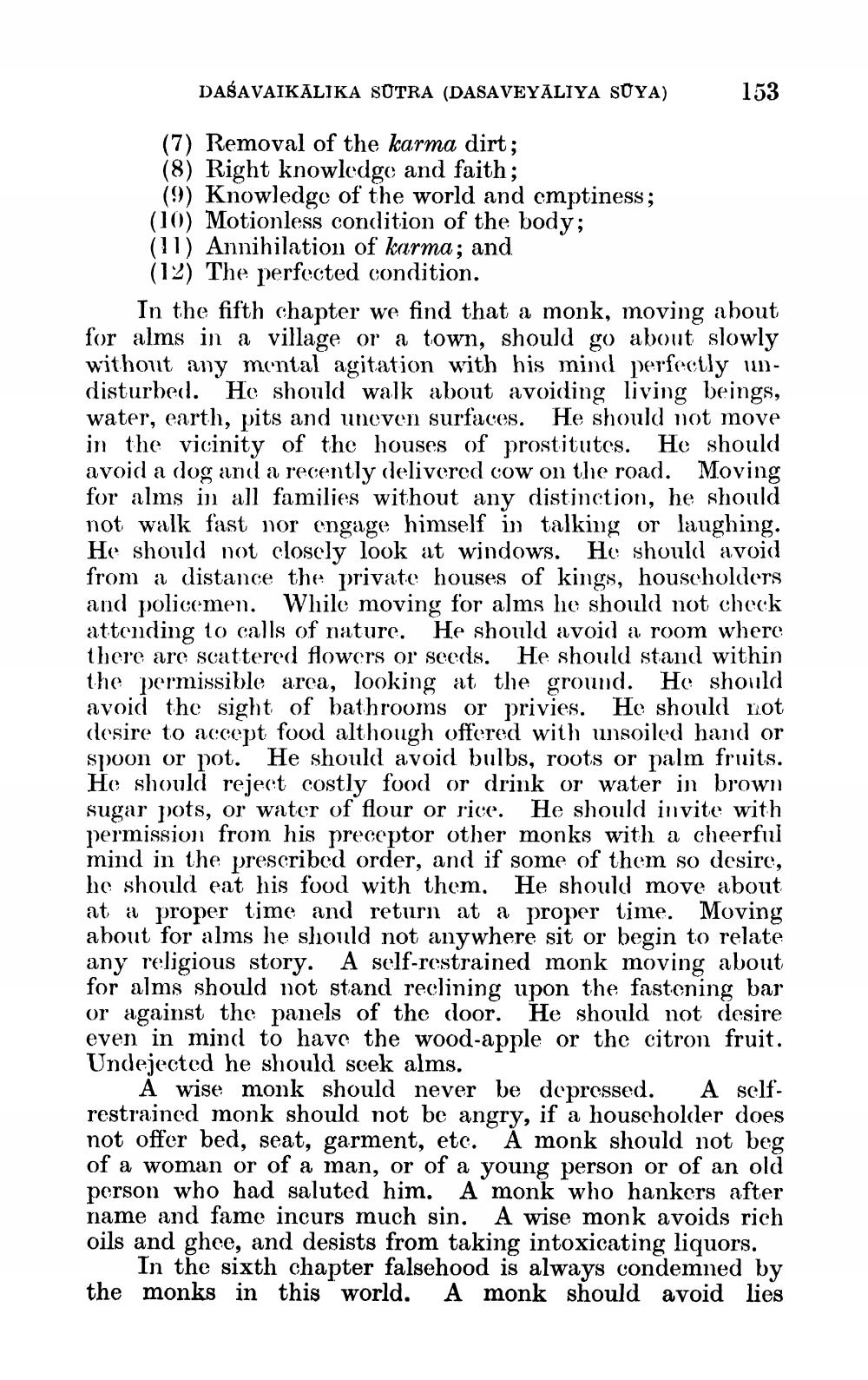________________
DASAVAIKALIKA SUTRA (DASAVEYALIYA SOYA)
153
(7) Removal of the karma dirt; (8) Right knowledge and faith; (9) Knowledge of the world and emptiness; (10) Motionless condition of the body; (11) Annihilation of karma; and (12) The perfected condition.
In the fifth chapter we find that a monk, moving about for alms in a village or a town, should go about slowly without any mental agitation with his mind perfectly undisturbed. He should walk about avoiding living beings, water, earth, pits and uneven surfaces. He should not move in the vicinity of the houses of prostitutes. He should avoid a dog and a recently delivered cow on the road. Moving for alms in all families without any distinction, he should not walk fast nor engage himself in talking or laughing. He should not closely look at windows. He should avoid from a distance the private houses of kings, householders and policemen. While moving for alms he should not check attending to calls of nature. He should avoid a room where there are scattered flowers or seeds. He should stand within the permissible area, looking at the ground. He should avoid the sight of bathrooms or privies. He should not desire to accept food although offered with unsoiled hand or spoon or pot. He should avoid bulbs, roots or palm fruits. He should reject costly food or drink or water in brown sugar pots, or water of flour or rice. He should invite with permission from his preceptor other monks with a cheerful mind in the prescribed order, and if some of them so desire, he should eat his food with them. He should move about at a proper time and return at a proper time. Moving about for alms he should not anywhere sit or begin to relate any religious story. A self-restrained monk moving about for alms should not stand reclining upon the fastening bar or against the panels of the door. He should not desire even in mind to have the wood-apple or the citron fruit. Undejected he should seek alms.
A wise monk should never be depressed. A selfrestrained monk should not be angry, if a householder does not offer bed, seat, garment, etc. A monk should not beg of a woman or of a man, or of a young person or of an old person who had saluted him. A monk who hankers after name and fame incurs much sin. A wise monk avoids rich oils and ghee, and desists from taking intoxicating liquors.
In the sixth chapter falsehood is always condemned by the monks in this world. A monk should avoid lies




